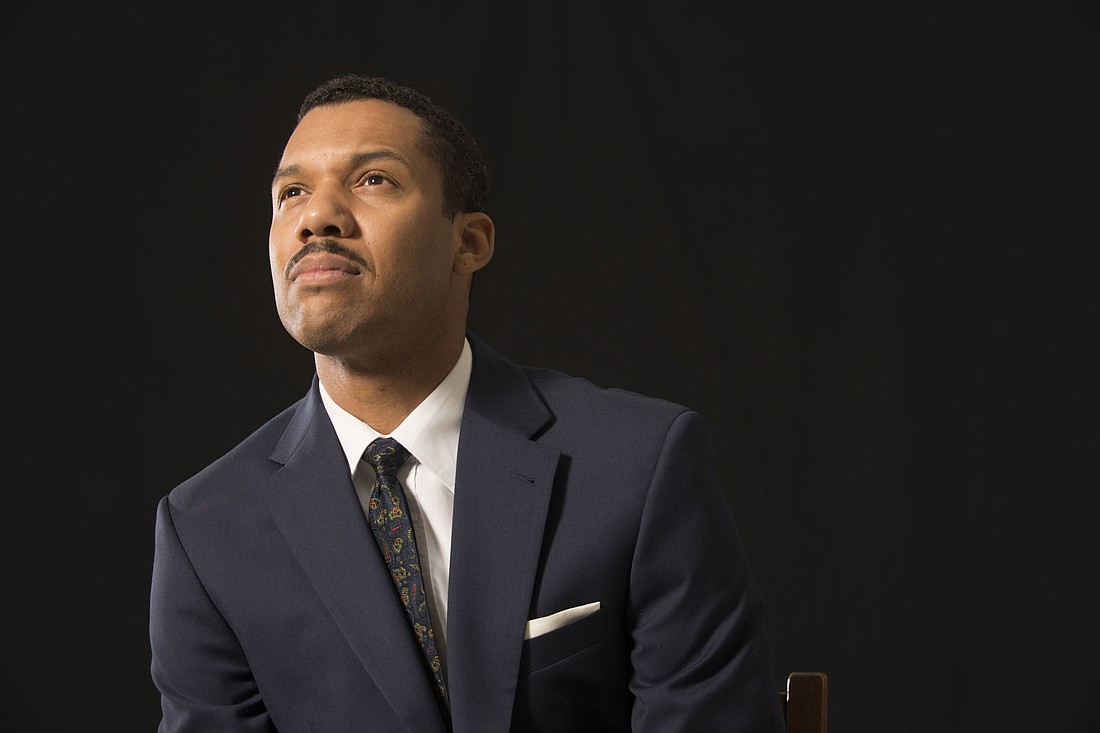- November 23, 2024
-
-
Loading

Loading

Don’t know much about history? Asolo Rep is working to change that.
The protagonist of its latest production is a tragic figure of the 1960s. A president from humble beginnings who rose to the highest office in the land and fell from grace. A brilliant strategist with a streak of paranoia. The man who actually set up the first audio taping system in the Oval Office. And walked away from that office when he felt that staying there would hurt the nation.
No, not Richard M. Nixon. Lyndon B. Johnson.
If you grew up in the 1960s, President Johnson was a larger-than-life presence. A sacred monster on the evening news at a time when America seemed to be tearing itself apart. If you were born after 1965, Lyndon Johnson is a shadowy figure lurking in textbooks, survey courses and History Channel documentaries.
Robert Schenkkan aims to set the record straight.
History is his turf, after all. He’s the playwright behind the groundbreaking “Kentucky Cycle.” Schenkkan also dealt with President Johnson’s early triumphs in “All the Way” in 2012, which opened at the Asolo Rep last year. In case you missed it …
An assassin’s bullet, not the ballot box, put Johnson in the Oval Office in 1963. LBJ then defeated Goldwater in the presidential election of 1964. After that landslide, Johnson wanted to build on JFK’s legacy — and get out of JFK’s shadow. Through intimidation, backroom deals, and sheer force of will, LBJ strong-armed the Civil Rights Act of 1964 through Congress. This early triumph was overshadowed by later quagmires.
“The Great Society” picks up where “All the Way” leaves off. It’s a rough road, stretching from November 1964 to Johnson’s refusal to seek a second term in March 1968. Schenkkan turns the raw historic record into theater.
The result is part character study and part forensic analysis.
The bare historical record is a mix of triumph and failure. Lyndon Johnson was one of the great, consequential presidents of the post-World War II era. He greatly expanded the welfare state that President Roosevelt had started. He also expanded the police action that President Kennedy had started in Vietnam — and ultimately led the United States into a full-fledged war that it couldn’t win. Johnson declared a War on Poverty in 1964. But the undeclared war in Indochina overshadowed his ambition.
To put that in context: By the time LBJ left office, the United States had more than half a million men in Vietnam. Nearly 600,000 troops. At the height of the Iraq war in 2007, there were only 172,000. Facts are facts.
What happened is clear. Why it happened isn’t.
For Schenkkan, character is destiny. He finds the answer in President Johnson’s all-too American character.
Director Nicole A. Watson has been part of the play since its birth. She participated in the workshopping process in 2014, and was the associate director for the initial productions by the Oregon Shakespeare Festival and Seattle Repertory Theatre.
“Schenkkan’s not trying to rewrite history,” notes Watson. “He’s trying to draw a fuller, more three-dimensional portrait of LBJ. There’s a simplistic view that Johnson was a terrible person who led us into a terrible war. Schenkkan doesn’t whitewash Johnson’s responsibility. But he shows us Johnson’s flawed greatness.”
Watson’s quick to add that Schenkkan’s LBJ has the same reality as Shakespeare’s Richard III. He’s a creature of the stage, not the history books.
“There’s the LBJ of world history, and the LBJ of this play,” she notes. “This is a fictional characterization, not a documentary. But it’s based in fact and a great deal of painstaking research.”
Matt DeCaro plays LBJ. His involvement with the play is far more recent than Watson’s. He’s stepping in for the previously announced Jack Willis — who in turn was subbing for Nick Wyman.
“The rehearsal process has been intense,” he says. “I’ve just had a crash course in all things LBJ.”
His take on President Johnson?
“President Johnson was a larger-than-life character with a heart and an ambition as large as Texas itself,” he laughs.
DeCaro shares that he and LBJ share a similar background.
“Lyndon Johnson had been a school teacher,” notes DeCaro. “Schenkkan’s play brings that out in Johnson’s reactions to the other characters. The world became LBJ’s classroom. He corrects; he remonstrates, he disciplines—and whacks people upside the head, metaphorically. Once a schoolteacher, always a schoolteacher. I’ve taught myself, and it rings very true to life.”
According to DeCaro, LBJ was always seeking teachable moments. And had some hard lessons to learn himself. “Like any great teacher, President Johnson was deeply committed to young people, he says. “And young protesters wound up chanting outside the White House … ‘Hey, Hey, LBJ. How many kids did you kill today?’ It must’ve broken his heart.”
Thanks to political observer Chris Jefferson for assistance with research on this preview.